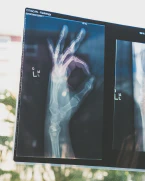Battling Motherhood''s Silent Struggle

The Feminine Mystique and The Problem That Has No Name
Motherhood is a journey that is both fulfilling and challenging. However, as much as motherhood has changed over the years, there are still issues that mothers face that have been around for decades. In this blog post, we’ll be discussing the timeless issue of loneliness and lack of fulfillment in motherhood, inspired by a video script that explores the topic.
The video script talks about the book The Feminine Mystique, which was written by Betty Ferdinand in 1963. The first chapter of the book is titled “The Problem That Has No Name,” which refers to the feeling of emptiness and lack of fulfillment that many mothers experienced during the 1950s and 60s. Women were confined to their roles as homemakers, and the spread of suburbia made it difficult for them to connect with other women and form meaningful relationships outside of their homes. The video script highlights the fact that despite the progress we’ve made since then, this problem still exists today.
In the modern-day, mothers still feel isolated and disconnected, even though they have more opportunities to connect with others. The video script explains that social media has created a rabbit hole that makes it easy for mothers to compare themselves to other moms and feel inadequate. Whether they are working moms or stay-at-home moms, they face judgment and guilt about their choices. They also worry about making the right decisions for their children, and this stress can leave them feeling like failures and frauds.
One of the most compelling parts of the video script is the speaker’s personal story. She shares how she was in excruciating pain and had to be admitted to the hospital. Despite being in pain, she felt content and realized that she was having a “hospital fantasy.” She realized that she was lonely and disconnected from her community, just like the mothers she sees in her practice. This realization prompted her to research the issue and ask tough questions about why women feel less satisfied with their lives than men do.
The speaker’s research revealed that women need closeness with other human beings every day. However, their friendship networks have shrunk over the years, and they spend more time shuttling their kids around than socializing with others. Social isolation is hazardous to our physical health and can increase our risk of death more than smoking or obesity.
So, what can we do to combat this problem? The video script suggests that having a best friend can have a significant impact on our mental health. The speaker bans being busy and reaches out to others more often, even when she’s tired. She encourages mothers to get together with friends, reach out to old friends, make new friends, and resolve issues with people from the past. Collective stories create community, and it’s up to each one of us to eliminate this problem.
In conclusion, the video script explores the timeless issue of loneliness and lack of fulfillment in motherhood. The Feminine Mystique and The Problem That Has No Name are still relevant today, as mothers continue to face challenges with isolation and disconnection. However, we can combat this problem by prioritizing human closeness, banning being busy, and reaching out to others. Together, we can create a community that supports and uplifts all mothers.
The speaker’s realization of her own loneliness despite her busy life
As mothers, we often find ourselves juggling countless responsibilities, from raising children to managing households to advancing our careers. It’s easy to get caught up in the busyness of our lives and forget to prioritize our own needs. However, as a recent video script highlights, even mothers who appear to have it all together can feel lonely and disconnected.
The video script explores the concept of “The Problem That Has No Name,” which refers to the feeling of emptiness and lack of fulfillment that many mothers experienced during the 1950s and 60s. While societal expectations and gender roles have shifted since then, this problem still affects women today. The speaker in the video script is a child and family therapist who has heard countless stories of mothers who feel exhausted, overwhelmed, and lonely in their lives.
Despite her professional background, the speaker had her own epiphany about loneliness. She shares how she was in excruciating pain and had to be admitted to the hospital. Despite being in pain, she felt content and realized that she was having a “hospital fantasy.” She was enjoying the time alone, without any responsibilities or distractions. However, this realization made her question why she was feeling so fulfilled in the hospital when she was lonely in her daily life.
The speaker’s realization is relatable to many mothers who are juggling multiple responsibilities. It’s easy to get so caught up in our to-do lists that we forget to make time for ourselves and our relationships. However, as the video script notes, social isolation can have a significant impact on our physical and mental health. It can increase our risk of death more than smoking or obesity.
Furthermore, the impact of social media can exacerbate feelings of loneliness and isolation. The video script notes that social media has created a rabbit hole that makes it easy for mothers to compare themselves to other moms and feel inadequate. Whether they are working moms or stay-at-home moms, they face judgment and guilt about their choices. They also worry about making the right decisions for their children, and this stress can leave them feeling like failures and frauds.
So, what can we do to combat this problem? The video script suggests that having a best friend can have a significant impact on our mental health. The speaker bans being busy and reaches out to others more often, even when she’s tired. She encourages mothers to get together with friends, reach out to old friends, make new friends, and resolve issues with people from the past. Collective stories create community, and it’s up to each one of us to eliminate this problem.
In conclusion, the video script highlights the importance of recognizing and addressing feelings of loneliness and isolation in motherhood. Even mothers who appear to have it all together can feel disconnected from others. The impact of social media can exacerbate these feelings, making it even more important for mothers to prioritize human connection. By making time for ourselves and our relationships, we can combat the problem that has no name and create a community that supports and uplifts all mothers.
The importance of human closeness for women’s life satisfaction
As human beings, we all crave connection and intimacy with others. For women, in particular, having close relationships with others is essential for their overall well-being and life satisfaction. A recent video script explores the impact of social isolation and the importance of human closeness in women’s lives.
The video script highlights the fact that women need closeness with other human beings every day. However, over the past 40 years, our friendship networks have shrunk. The speaker notes that women move around on average 11 times throughout their lifetime, and shuttling kids around has caused mothers to spend more time in their cars rather than socializing with others. Social isolation is hazardous to our physical health and can increase our risk of death more than smoking or obesity.
Furthermore, the video script explores the potential impact of having a best friend on our mental health. The speaker notes that if each one of her clients had a best friend, her practice might be cut in half. Having a best friend can provide a sense of belonging and purpose in life. It can also provide emotional support during challenging times and help us cope with stress.
The speaker encourages women to ban being busy and prioritize human connection. She suggests that women get together with friends, reach out to old friends, make new friends, and resolve issues with people from the past. Collective stories create community, and it’s up to each one of us to eliminate social isolation and create a support system for ourselves and others.
In conclusion, the video script highlights the importance of human closeness for women’s life satisfaction. Shrinking friendship networks and social isolation are major health hazards, and it’s essential that we prioritize our relationships with others. Having a best friend can have a significant impact on our mental health, providing emotional support and a sense of belonging. By prioritizing human connection and making time for our relationships, we can combat the problem of social isolation and create a community that supports and uplifts all women.
Collecting stories to create community and eliminate the problem
As human beings, we all crave connection and a sense of belonging. For mothers, this sense of connection is especially important, as they juggle countless responsibilities and often feel isolated and alone. A recent video script explores the importance of collecting stories to create community and eliminate the problem of social isolation.
The video script encourages mothers to prioritize human connection and reach out to others, even when they are busy. The speaker suggests that mothers ban being busy and make time for their relationships with others. By doing so, they can combat the problem that has no name and create a community that supports and uplifts all mothers.
The speaker notes that collective stories create community. By sharing our experiences with others, we can create a sense of belonging and purpose in life. It’s important to remember that we are not alone in our struggles, and by connecting with others, we can find support and comfort.
Furthermore, the video script highlights the importance of having a witness in life. Susan Sarandon’s quote, “We all need a witness,” speaks to the fact that our lives are not meant to be lived in isolation. We need someone to witness our lives and offer support and validation. Having a close friend can provide this sense of witness, helping us feel seen and heard in our daily lives.
In conclusion, the video script encourages mothers to prioritize human connection and reach out to others. By banning being busy and making time for their relationships, they can combat the problem that has no name and create a community that supports and uplifts all mothers. Collective stories create community, and by sharing our experiences with others, we can find a sense of belonging and purpose in life. Susan Sarandon’s quote highlights the importance of having a witness in life, someone to witness our lives and offer support and validation. By prioritizing our relationships and making time for our friendships, we can create a life that is fulfilling and meaningful.
Conclusion
Motherhood is a challenging journey that requires immense dedication and sacrifice. However, the challenges that mothers face can often lead to social isolation and a lack of fulfillment. The problem that has no name, first identified in Betty Friedan’s book The Feminine Mystique, still affects women today. The spread of suburbia and the advent of social media have only increased the problem, leading to feelings of guilt, judgment, and loneliness.
The video script discussed in this post highlights the importance of human closeness and community in combating the problem that has no name. Women need close relationships with others every day, yet over the past few decades, our friendship networks have shrunk, and social isolation has become a major health hazard.
The potential impact of having a best friend on mental health cannot be overstated. Having a close friend can provide a sense of belonging and purpose in life, emotional support during challenging times, and help us cope with stress. It’s up to each one of us to prioritize human connection and make time for our relationships with others.
Collecting stories can create community and eliminate the problem that has no name. By sharing our experiences with others, we can create a sense of belonging and purpose in life. It’s important to remember that we are not alone in our struggles, and by connecting with others, we can find support and comfort.
In conclusion, it’s crucial to ban being busy and prioritize our relationships with others. By doing so, we can combat the problem that has no name and create a community that supports and uplifts all mothers. Susan Sarandon’s quote, “We all need a witness,” speaks to the fact that our lives are not meant to be lived in isolation. We need someone to witness our lives and offer support and validation. By prioritizing our relationships and making time for our friendships, we can create a life that is fulfilling and meaningful.














